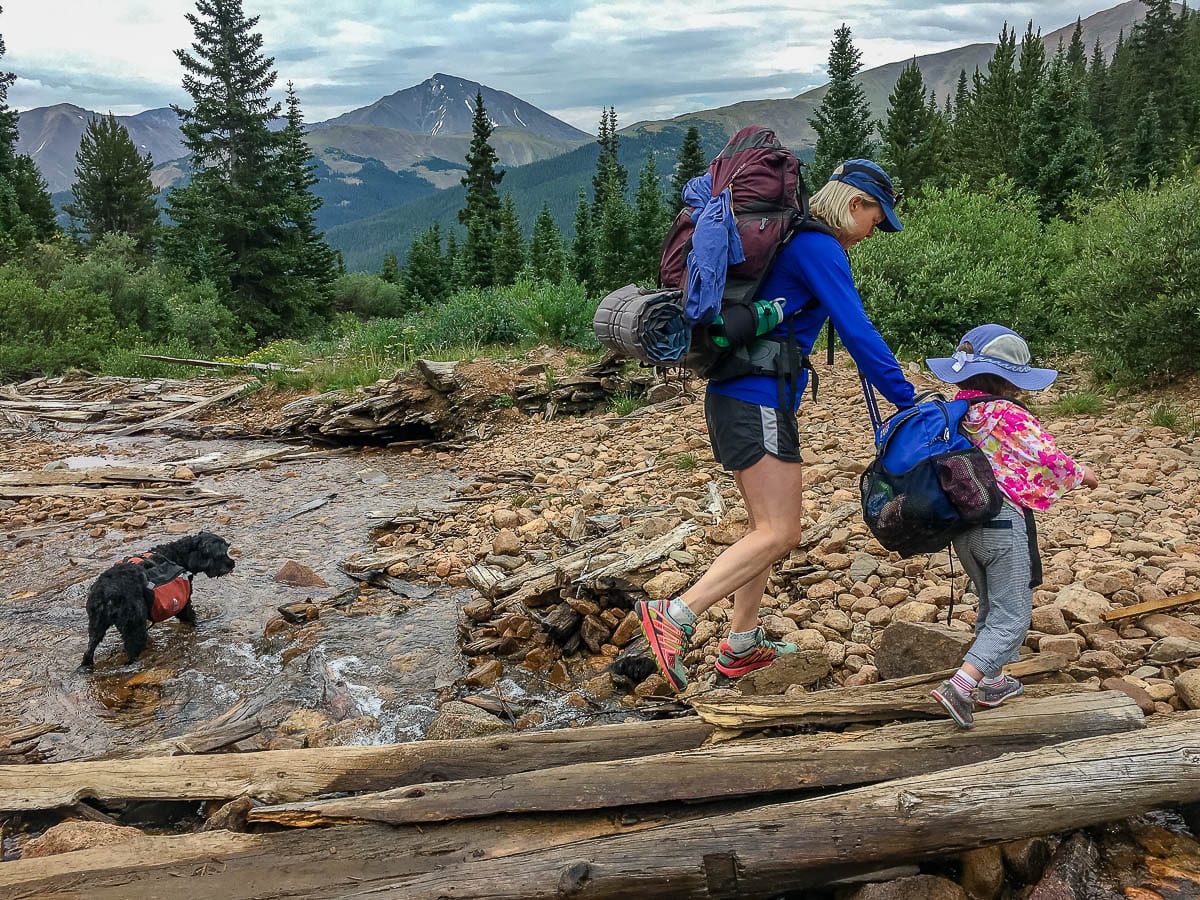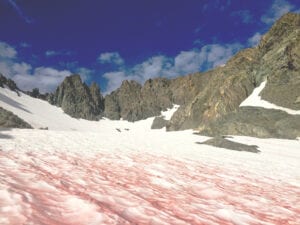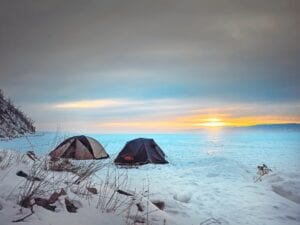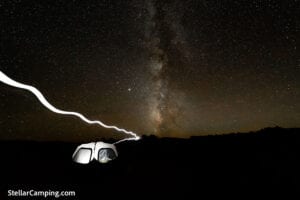For most campers, fall and winter are the time to stow our camping gear until camping-friendly temperatures return in the spring. Here we’ll provide a quick run-down of the critical steps to ensure your camping gear successfully weathers the winter. Storing camping gear properly can save you money!
Storage locations for camping gear
You may want to keep camping gear somewhat accessible so that it’s available for use if you’re lucky and hit a spell of nice weather (or if you want to use some of your gear for other purposes, like sleepovers). Choose a cool, temperature-controlled location away from direct sunlight. Options include under your bed, a closet, or a basement. Be wary of storing your gear in a shed, garage, or attic, because pests and extreme temperatures may cause damage. To keep bugs at bay, try a lavender sachet.
Taking stock before storing camping gear
It’s a good idea to look over your gear before stowing it to see if any repairs need to be made. Winter is the ideal time to send gear out for repairs, in particular. Also, if you determine that items need to be replaced, you may be able to score a good deal on new gear during the off season.
Storing a tent
- Clean dirty spots with a non-abrasive cloth/sponge and a specially designed cleaner like Nikwax Tech Wash or diluted soap
- Dry thoroughly
- Lightly roll your tent, or otherwise store in a way that doesn’t compress it
- Consider cleaning and lubricating zippers
Storing sleeping bags
- Spot clean your bag if not too dirty, or perhaps thoroughly clean it, following the manufacturer’s directions – check out REI’s comprehensive guide to washing sleeping bags
- Store your bag hanging up, lying flat, or in a large mesh or cotton bag – not in a stuff sack or waterproof bag
- Consider cleaning and lubricating zippers
Storing sleeping mats
- Spot clean dirty areas
- Make sure the mat is thoroughly dried (inflating and deflating a few times can help reduce moisture inside)
- Don’t store compressed, and keep valves opened
Storing lamps, stoves, and other devices
- Remove flammable material
- Gas canisters should not be stored indoors, if possible
- Remove batteries from the devices they’re used in to prevent corrosion
Storing backpacks
- Make sure no crumbs are lurking at the bottom that might attract pests
- Hang in a location that rodents would have difficulty reaching
Storing camping food and cookware
- Check that food won’t expire during the winter, and if so, eat it up
- Keep food where pests can’t reach it, such as in a plastic bin with a lid or your bear canister
- Make sure your cookware is fully clean and let dry before storing
- Don’t leave soap in a container with food, because food can take on a soapy scent








